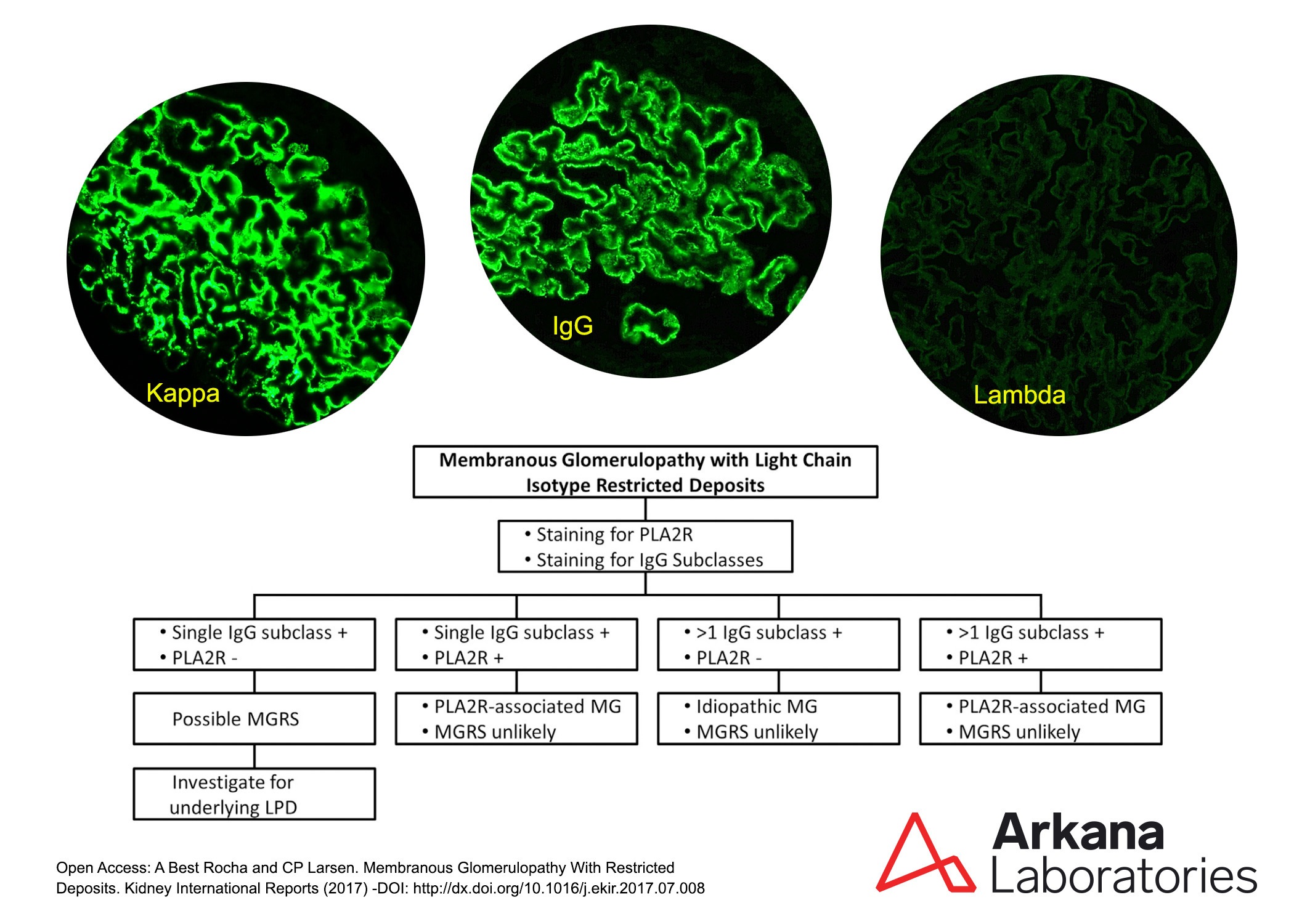Membranous glomerulopathy (MG) is a common cause of nephrotic syndrome that results from the formation of immune complexes along the subepithelial aspect of the glomerular basement membranes. Approximately 1% of membranous cases will show light chain restriction by immunofluorescence. The majority of MG cases with light chain restricted deposits lack a recognizable secondary etiology. However, absence of PLA2R-positivity within glomerular deposits, positive staining for a single IgG subclass and presence of focal proliferation by light microscopy are worrisome histopathologic features that should prompt a thorough clinical workup to exclude the presence of an underlying lymphoproliferative disorder, even in the absence of a recognizable paraprotein.
Quick note: This post is to be used for informational purposes only and does not constitute medical or health advice. Each person should consult their own doctor with respect to matters referenced. Arkana Laboratories assumes no liability for actions taken in reliance upon the information contained herein.


